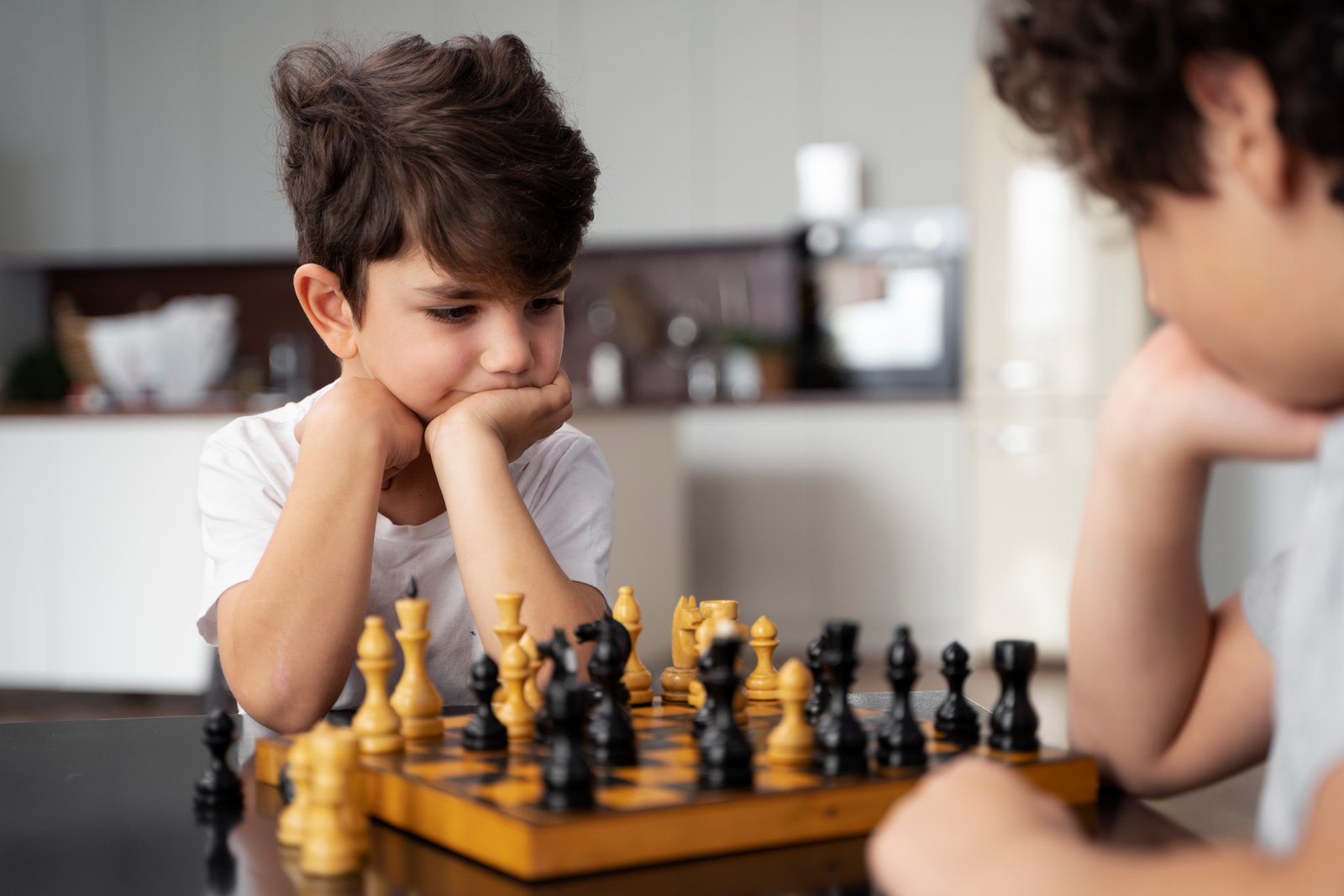
Chess is a mental exercise that sharpens cognitive skills, critical thinking, and problem-solving ability—not just a game. Parents in the USA are seeking group online chess courses for children to improve their academic performance as schooling becomes more competitive. Real-world academic advantages follow from the disciplined attitude, strategic thinking, and systematic learning needed in chess. From raising focus to encouraging patience, group online chess class for kids in USA is a great tool for getting kids ready for success in the classroom and beyond.
In a game of strategy, chess demands players to evaluate situations, project results, and make reasonable moves. Children are taught in a best group chess class to assess many options before moving, therefore strengthening their capacity for critical thinking. This ability closely relates to disciplines like maths and physics, where analytical thinking and logical reasoning are prerequisites.
Playing chess calls on memory of prior moves, knowledge of several tactics, and prediction of opponent behaviour. Regular involvement in a group online chess instruction for American children enhances memory retention and recall skills.
Chess requires great focus, as even a little diversion may cause one to lose the game. Children who take part in the top group chess courses grow to be habitually concentrated for long stretches of time. This increased focus benefits them in academics; it enables them to pay attention in class, absorb knowledge more successfully, and finish assignments free from interruption.
Chess calls for patience and long-term thinking, unlike fast-paced electronic games. Players have to predict the actions of their opponent and meticulously map their tactics several steps ahead. When facing difficult academic difficulties, composing essays, or getting ready for tests, this exercise helps children acquire patience and foresight—qualities that are very helpful.
As both chess and mathematics need logical thinking, pattern detection, and problem-solving, they have numerous parallels. Young Americans enrolled in group online chess courses develop their understanding of probability, geometric ideas, and numerical values. Regular chess players have been shown in studies to typically do better in arithmetic than non-regular players.
Every move matters in chess and players have to make autonomous judgements. Making wise judgements in a best group chess class builds confidence that will carry over into academics and let students approach examinations and assignments with a problem-solving attitude. They come to rely on their intuition, examine judgements, and own their mistakes.
Learning rules, tactics, and notations in chess improve reading comprehension by means of this game. Many chess problems and situations need an appropriate interpretation of material and reading directions. Regular chess players often have improved reading and speaking abilities, which helps them succeed in disciplines requiring textual analysis and understanding.
Beyond the chessboard, the best group chess lessons for American children have a great impact on their scholastic success. From sharpening critical thinking to strengthening attention and memory, chess teaches youngsters abilities vital for success in both life and the classroom. Chess turns out to be a great instrument to hone young brains and equip them for future problems as parents search for interesting and intellectually stimulating hobbies for their children.